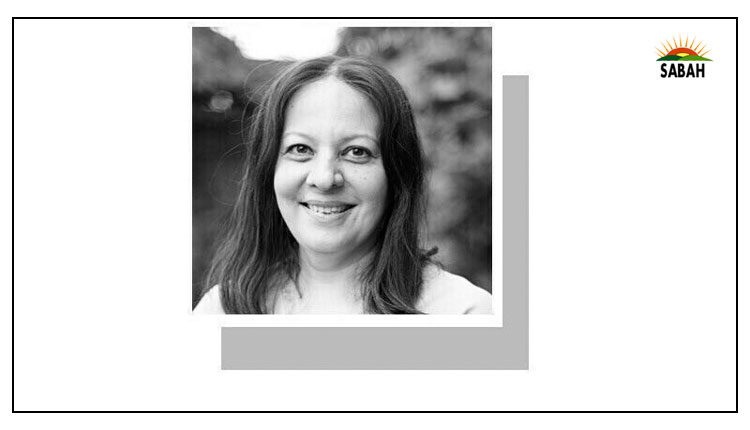Equal citizens۔۔۔Muna Khan
MANY of us are likely to know someone who travelled to another country to give birth and secure that countrys citizenship for their child. Its easy if you have the money, though some countries have made acquiring citizenship through birth harder. You can also buy citizenship in exchange for investment in, for example, Dominica in the Caribbean or Montenegro in Europe or Vanuatu in Oceania. (I had to look up Vanuatu after hearing about its citizen of Pakistani descent, Farah Gogi.)
However, citizenship by birth or investment doesnt define what it means to be a citizen. There are a lot of ethical questions around whether citizenship should be conditional like the case of Shamima Begum, the IS bride who had her UK citizenship revoked and is stuck in a refugee camp, a victim of trafficking. The UK says Shamima is Bangladeshi by way of her parents but Bangladesh disagrees and refuses her entry so she remains one of the 4.4 million stateless people in the world.
Its become easier to deprive people of their citizenship in the name of security. This happened in March in Nicaragua which stripped the citizenship of 300 people, mainly opponents of President Daniel Ortega. Earlier this year, Ukraines president Volodymyr Zelensky revoked citizenship of four lawmakers he accused of treason or supporting Russia the same thing I suppose. You can be stripped of citizenship in 15 EU countries on some grounds of disloyalty or treason. Just last month, an Israeli lawmaker proposed a bill that would revoke citizenship of those who showed support for terrorists.
This is a strange return to ancient practices when people were banished from kingdoms for disloyalty. When it was created in 1945, the UN defined citizenship as a basic human right. There are international laws that disallow revoking of citizenship on political, racial or ethnic grounds. Yet, as reported in the Washington Post this year, one in five countries had expanded provisions to revoke nationalities for reasons related to disloyalty. About 70 per cent of the 190 countries had some law that could revoke citizenship.
This revolving door of bad policies is exhausting.
Pakistans concept of citizenship is equally centred around security and loyalty to a militarised state. Many have pointed to the example of thousands of Afghans who have only known Pakistan as their home but were forced to move to Afghanistan. The media cheered their return because they were depicted as criminals, though crime has not disappeared because the refugees have. Shortly after assuming office, Imran Khan pledged citizenship to 1.5m Afghan refugees but had to renege a mere few days later, the first of many U-turns that showed he was not steering the policymaking ship.
This country bears witness to a tiered system of citizenship where good and bad citizens are defined by a revolving door of leaders. Todays good citizens will be tomorrows bad citizens etc. We see this play out most with political leaders who weasel themselves back into favour by ceding space in exchange for power. But the most vulnerable and marginalised stay at the bottom as weve seen most recently with the treatment meted out to Baloch women protesters in Islamabad.
Those managing Pakistans affairs use their force against the most vulnerable. They are aided by political parties, lawyers, judges, celebrities and the media all too happy to question peoples patriotism for ratings, approval, deals, etc.
Its worth reminding who gets to protest and face no consequence and who gets water-cannoned in the middle of winter, detained and carted in buses as if theyre being expelled. Today PTI whose disco dharna was ultimately rewarded is expressing solidarity with Baloch protesters much like the Sharif family did when they were on the outside
This revolving door of bad policies is exhausting.
Citizenship cannot be conditional on loyalty to the establishment, the prime minister of the day, or anyones definition of virtue. Steps like blocking suspicious CNICs of 70,000 people in Balochistan a few months ago, or of 18 PTI leaders a few days ago, does not make a state safer. It is farcical to continue to think so, especially for countries that pride themselves on being liberal.
Im not here to lecture on citizenship but questioning the motives of one of the organisers of the Baloch long march, Dr Mahrang Baloch, and framing her as duplicitous is a disservice to audiences who deserve fair news coverage. Journalists who show allegiance to the powerful and not to their profession will ultimately pay a heavy price.
Marginalised communities bear a heavy price for being portrayed as bad citizens when they are merely asking for an end to enforced disappearances. It is grossly demeaning and requires a rethink, preferably by people elected to make policies grounded in fair principles of justice.
Courtesy Dawn












